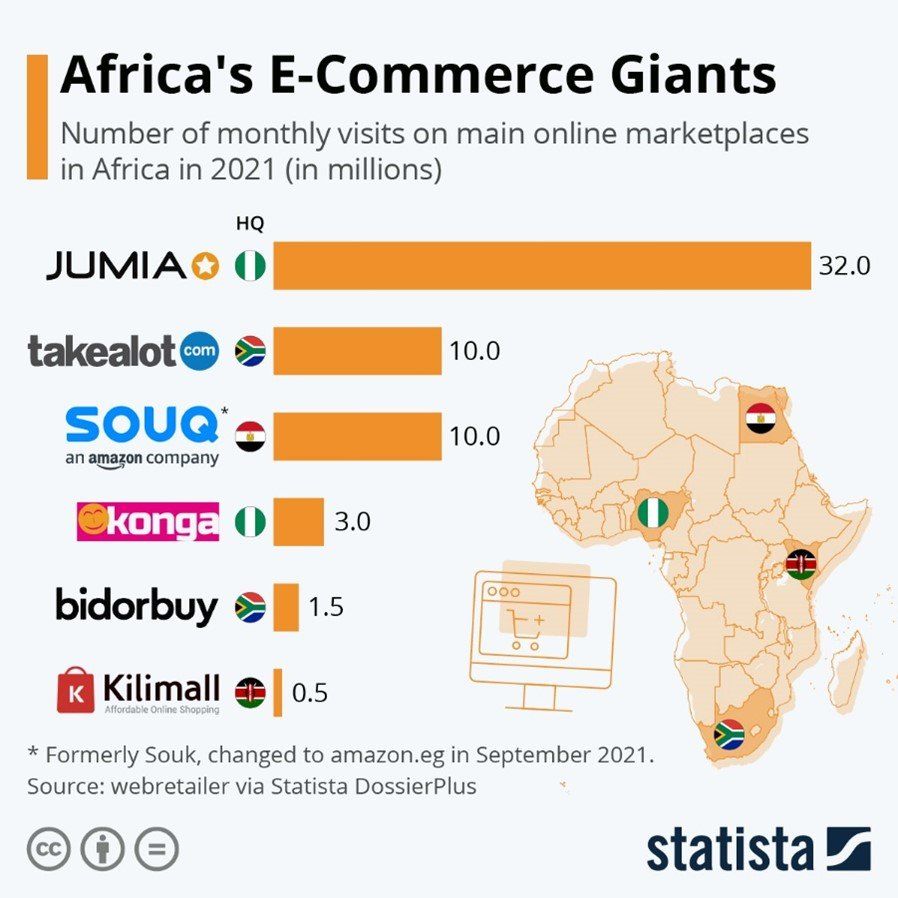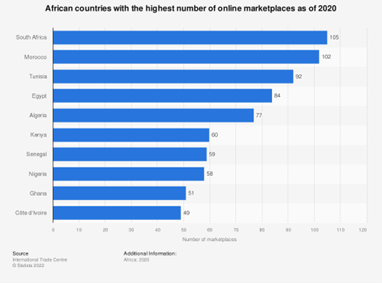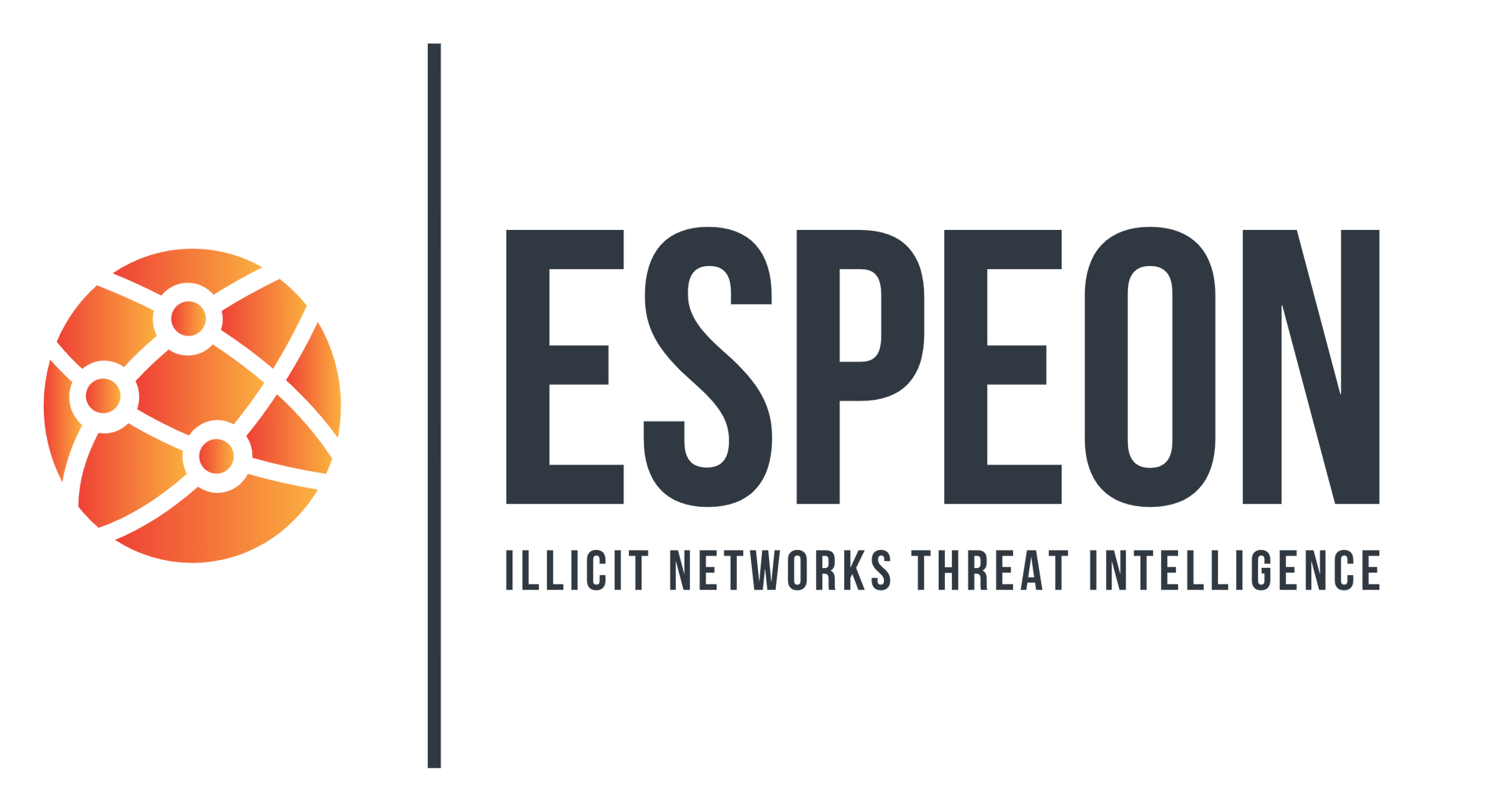It’s no secret counterfeit products are a huge global issue. The International Chamber of Commerce thinks the value of fakes around the world in 2022 could reach $991 billion. The impact on lives, jobs, and crime, is real.
In Africa, the impact of counterfeits is widespread, like in the pharmaceutical sector, where they make up to 60% of sales. The World Health Organisation (WHO) thinks that 100,000 people die in Africa every year due to counterfeits. This is not just an economic issue, but sometimes of life and death.
Africa’s growing use of online markets provide huge opportunities for those supplying counterfeit goods. The problem is how do you know if counterfeits are being sold in Africa? where? how? by whom? and how many?
Lets look at some of the proven ways you can find and tackle Africa’s online counterfeits.
The hyper-growth of Africa’s Online Marketplaces
Africa is forecast to surpass 500 million online marketplace users by 2025. This signals huge growth from about 140 million in 2017. You can see the opportunities for offering products and services via e-commerce and online marketplaces are obvious and enticing. I’ve noticed this is certainly the case for those offering counterfeit goods.

The reach of Africa online marketplaces is extensive and growing.
There are many online selling platforms used across African countries. The most popular are those with third-party marketplaces and a cash-on-delivery model.
When you look to buy online across Africa, it is clear there is no one dominant marketplace.
Jumia is the closest e-commerce offering Africa has that can be compared to Amazon with up to 23 million visits per month. It is also the only marketplace that you could consider to be truly pan-African. They bring in orders from Nigeria, Egypt, Morocco, Kenya, Tunisia and more. You will also find country or region-specific offerings such as Takealot.com in South Africa (10 million per months), Souq in Egypt (10 million per month) and Konga.com in Nigeria (3 million per month), that provide a large market reach.

Online platforms that offer you consumer-to-consumer listings such as Facebook Marketplace, Gumtree and Jiji are increasingly used. Mobile device apps like WhatsApp and WeChat are also prevalent. These are an extension of the informal type of trade that you find in many parts of Africa.
While buyers in other regions tend to use one or few popular sites (like Amazon in US & Europe, Mercado Libre in South America), Africa is different.
Some countries in Africa have about 100 online marketplaces. When you think Africa has 54 countries, trying to find counterfeits, or knowing where to start can be daunting. The key, I’ve realised is to know each African country's online markets and how counterfeits appear.

Cash is king in Africa online markets
Cash is still the preferred way of paying for your goods on Africa's online markets. This means platforms offering Cash-on-Delivery are a natural home for the online shopper. Plus, those platforms listing customer-to-customer exchange, which do not own, handle, or process payment are widely used.
The problem can be where cash is used there may be little or no transaction trace. This model presents a challenge to control counterfeits being offered. Counterfeit sellers believe there is low traceability and a large market reach on Africa's online markets.
Finding & Fighting fakes online in Africa
Where do you start to find counterfeits online in Africa?
If you know there is a problem with online counterfeits in Africa, it can be overwhelming when trying to undertake an effective strategy to fight it. Even worse is if you don’t know there is a counterfeit problem, or how big the problem is.
The number of online markets requires you to understand how to find counterfeits on each. To do this, Espeon has built a system of tools, techniques, and queries. This system, developed over years, finds counterfeits offered across any of Africa’s online platforms.
How do you know who is offering counterfeits online in Africa?
Across the many African online markets I’ve seen vendor registration requirements vary a lot. Some require company details; others ask for personal ID. In many cases they do not ask you for any verified details at all. It is easy to see why counterfeit sellers believe they can operate without being known or traced.
Fortunately, I’ve found there is enough detail shown on markets to identify those responsible. Even with a just profile name, phone number, or email address, you can unravel the network behind the counterfeits.
What about those who makes and supplies the counterfeits?
Finding and stopping counterfeits in Africa is vital. When you look deeper, most Africa counterfeits come from elsewhere, mostly from Asia. If you don't know the suppliers, the counterfeits can continue. You can also find these suppliers. Those who manufacture and supply also require customers. This usually requires advertising somewhere online. Gratefully, I’ve seen this activity can be traced.
Also, when you know the counterfeit sellers in Africa, you can find the international trail. By using digital intelligence tools, I’ve found ways to unravel the entire supply chain. This often means action can be taken to stop the entire counterfeit process.
What action can you take to stop Africa counterfeits?
With many entities in the counterfeit supply chain, stopping them is vital. When you have identified the counterfeit chain, you can decide which part of the process to tackle and when. This could be test-purchases, take-downs, gathering intelligence, and enforcement. This integrated approach provides the options you need to stop counterfeits.
Working with trusted partners in Africa is vital to address the entire counterfeit process. This includes on-the-ground activity, legal liaison, and enforcement actions. Espeon works with those partners to give you a complete and wholly effective approach.
Where to start?
Espeon are currently providing a FREE Africa Online Brand Integrity Report (prepared and delivered within 5 days). This will show you where and how counterfeits of your brands and products are being offered online across Africa. This will include high-risk counterfeit listings, and associated intelligence. We will show you effectively and clearly how to find and prevent counterfeits online.
Contact us today to get started.


